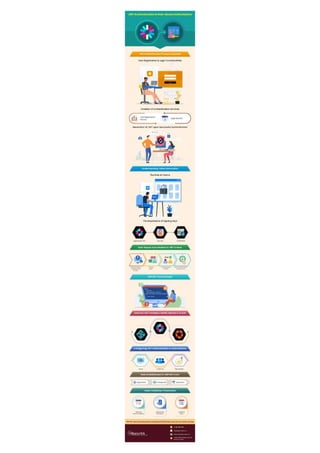JWT Authentication and Role-Based Authorization
JWT, or JSON Web Tokens, is a concise and self-contained way of securely sending information as a JSON object between two sides. This data is verifiable and reliable since it is digitally signed. JWTs can be signed either with a secret (HMAC algo) or with a public/private key pair via RSA or ECDSA. Their utilization in authentication lies in their ability to reliably transfer user identity and credentials between a client and a server, enabling user authentication without needing to repeatedly query the database or keep session information on the server. This, therefore, makes JWT a very effective, lightweight stateless authentication means. On the contrary, role-based authorization is a system that limits access to resources by their assigned roles. This approach provides application-level access control, where users are given different access levels based on their roles.

